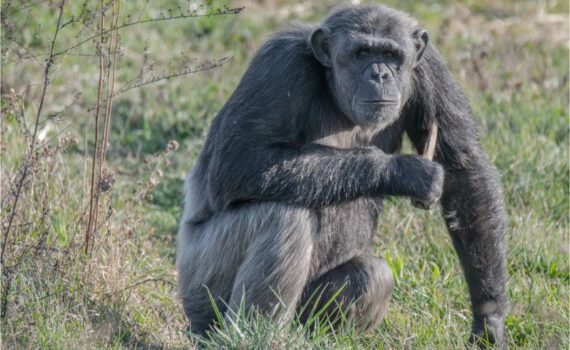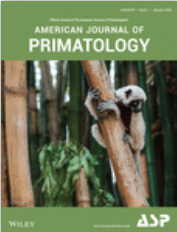
The Impact of Social Isolation on Rescued Chimpanzees
A recent study published in the prestigious American Journal of Primatology sheds light on the long-term effects of social isolation and inadequate living conditions on chimpanzees rescued from captivity. The research, led by Fundación MONA and the University of Aberdeen (Scotland), focuses on the behaviour of these animals after being rescued from their roles as pets or in the entertainment industry.
The research focuses on the behavior of these animals after being rescued from their roles as pets or in the entertainment industry.
The Results Are Clear
Age at rescue and prior social conditions play a crucial role in the well-being of chimpanzees. The study, conducted at MONA’s facilities, analyzed the behavior of ten individuals through non-invasive observations. It found that chimpanzees rescued at older ages and from socially isolated environments exhibited a higher rate of abnormal behaviors, such as self-harm.
However, those who had lived in groups prior to rescue demonstrated notable resilience.
“Our findings not only show how social isolation can leave deep scars on these animals but also highlight how crucial early interventions and the right environment are for their rehabilitation,” explains Emma Chen, the study’s lead author. “This serves as a reminder of the importance of not just rescuing them but also providing a socially enriching environment that enables their recovery.”
The research underscores that an adequate social environment can be key to mitigating the effects of early mistreatment. At MONA, rehabilitation focuses on establishing stable and enriching social groups to help chimpanzees recover natural behaviors and improve their quality of life. “These findings are a testament to the resilience of chimpanzees and the transformative impact of proper care,” adds Dr. Dietmar Crailsheim, co-author of the study and Head of Research at Fundación MONA.
The results provide a solid foundation for future research. MONA reaffirms its commitment to science and conservation, working not only to rescue primates but also to advance the knowledge needed to protect these complex and vulnerable animals.

Read the full article here:
https://doi.org/10.1002/ajp.23715
You Can Be Part of the Change
We invite our supporters to learn more about this important research and to support our mission. Every donation and sponsorship allows us to continue making a difference in the lives of rescued chimpanzees and fostering positive change in their conservation and welfare.






